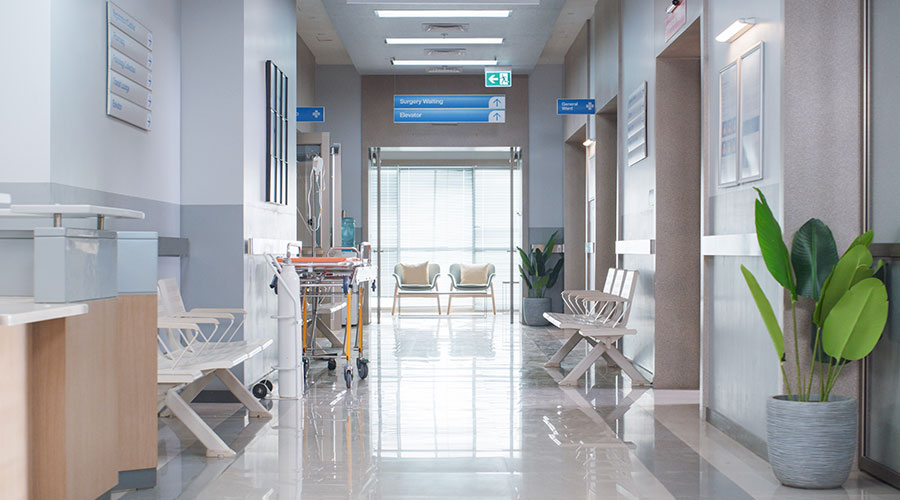<![endif]-->
Binary Fountain, an online reputation and consumer experience management platform for enterprises, healthcare organizations and small and medium-sized businesses, today released the findings of its 2019 “Healthcare Consumer Insight & Digital Engagement” survey. With the goal of getting an updated view into how patients search, evaluate and share their experiences with their providers, the survey, conducted by OnePoll and commissioned by Binary Fountain, shows patients’ continued dependence on online ratings and review sites and increased trust in social media to make informed healthcare decisions.
Patients Depend on Online Reputation More Than Ever When Choosing a Physician
The survey shows that consumers rely heavily on online ratings and reviews when choosing a provider. According to this year’s survey results:
● 75% of respondents are influenced by online rating and review sites when selecting a provider.
● In fact, 60% of consumers check the ratings and reviews of a provider, even when referred by another provider, up 44% since 2018.
● 80% of respondents believe online provider ratings and reviews are “somewhat” to “very” reliable.
● Additionally, only 9% of respondents in 2019 selected they “do not use any websites or online platforms” when selecting a provider. By comparison, 48% of respondents selected this answer in 2017, representing an 80% increase in Americans using some form of online website or platform to choose a provider.
Of the respondents that have utilized ratings and review sites when searching for a provider, 53% selected Google as a primary source, followed by a hospital and/or facility’s website (48%), Facebook (45%), Healthgrades (42%) and Instagram (28%).
More Consumers Are Using Social Media for Provider Searches
This year’s survey results also found that consumers are increasingly utilizing social media channels to find providers. For instance, 51% of consumers use social media platforms to search for a provider, a 621% increase from Binary Fountain’s 2017 survey results.
● In particular, Facebook saw a 264% increase from 2018 to 2019 in its use to help patients find a provider.
● Other social media platforms such as Instagram and SnapChat have seen a 550% and 365% increase, from 2018 to 2019, respectively.
● Likewise, specialized listing sites like U.S. News & World Report (536%), ShareCare (454%) and ZocDoc (359%) continue to gain more traction year-over-year.
More Patients Are Sharing Their Healthcare Experiences through Social Media
When asked “what online platform(s) have you ever used to share your provider/hospital experiences,” respondents selected Facebook (57%) as the leading platform, followed by Google (49%) and a tie between hospital and/or facility website and Healthgrades at 40%. The 2019 survey results also revealed:
● All social media platforms, besides Facebook, have more than tripled the amount of provider/hospital online feedback they had received in 2017.
● In fact, Google has seen a 319% increase in sharing provider/hospital experiences on its platform since 2017.
● Similarly, Instagram has seen an 506% increase in sharing provider/hospital experiences since 2017.
● Finally, Facebook has seen a 170% increase in sharing provider/hospital experiences on its platform since 2017.
Furthermore, only 5% of respondents mentioned they “don’t share feedback on online platforms” in 2019, a stark contrast to the 69% of respondents that selected that answer in 2017.
Healthcare Consumers Seek Digital Scheduling
The survey shows that consumers are increasingly looking to digital devices to schedule appointments. The survey results revealed:
● A majority (60%) of Americans say they have used an online search engine to look for a provider, a 60% increase from the 2017 survey results.
● In fact, 29% of respondents have booked appointments directly from a provider’s website, a 100% increase from 2018.
● Making appointments by phone has decreased by 45% since 2018. However, 47% of consumers still make appointments by phone, making it the leading method for booking healthcare appointments today.
● Use of voice search capabilities to find physicians has made a significant leap with 30% of respondents selecting voice assistant devices (i.e., Siri, Alexa, Google Home, etc.) as a source, an increase of 756% since 2018.
Based on the above findings, it is critical for healthcare providers to verify and ensure their contact information is accurate and up-to-date across all online listings and third-party websites.
Ease of Scheduling and Wait Times Are Critical to Winning Business
Across the board, patients indicated that “waiting to see the provider” and “scheduling” are the most frustrating factors when visiting a healthcare facility. For example, the survey results show:
● 27% of healthcare consumers list "wait times to see a provider" as their biggest pain point.
● Whereas, 20% of respondents list "scheduling an appointment" as the biggest pain point, up 129% from last year.
● Additionally, "the physical exam" and "awaiting exam results" have become increased pain points for patients since 2017, up 146% and 137% respectively.
Customer Experience is a Vital Concern for Patients
Patients continue to have high expectations for customer service and bedside manner. The survey examined, through multiple-answer questions, what factors matter most to patients when rating or evaluating a provider. The survey results revealed:
● Consumer Assessment of Healthcare Providers and Systems (CAHPS) Survey results (22%) are becoming increasingly important to patients when choosing a provider, a 700% increase from 2017. CAHPS scores are a vital measures for providing healthcare organizations with a view into the patient’s perceptions on the care they were provided, as well as, a determining factor for government reimbursement.
● “Thoroughness of the examination,” “friendly and caring attitude” and “ability to answer all your questions” remained the top three answers for all three years.
● In 2017 and 2018, “friendly and caring attitude” was the top ranked factor; however, in 2019 “thoroughness of examination” (41%) was the top factor, followed by “friendly and caring attitude” (38%) and “ability to answer all your questions” (26%).
● In 2019, ages 25-54 agreed “thoroughness of the examination” mattered the most when evaluating a provider; while ages (8-24 selected “friendly and caring attitude” as their top choice and ages 55+ selected “friendly and caring attitude” and “ability to answer all your questions” as their top choice.
Surprisingly, “location” and “insurance coverage” dropped in importance by 42% and 48% respectively since 2017. This drop illustrates patients’ willingness to go out-of-network and/or travel further to visit a provider or facility that boasts more positive ratings and reviews.
“Binary Fountain’s annual healthcare consumer survey continues to shine a spotlight on patients’ growing dependence in online ratings and review sites in today’s competitive healthcare environment,” said Aaron Clifford, senior vice president of marketing at Binary Fountain. “As more and more patients become vigilant in utilizing online rating, reviews and social media platforms to research and share their healthcare experiences, providers and facilities alike will need to be more digitally connected and engaged if they want to compete for patients’ loyalty and business.”
Survey Methodology
Sponsored by Binary Fountain, the 2019 “Healthcare Consumer Insight & Digital Engagement” survey was conducted by One Poll, a marketing research company specializing in online quantitative research and polling, between July 25-26, 2019. Feedback was obtained from 1,000 U.S. adults who go to the doctor.
For more information, visit www.binaryfountain.com or follow on Twitter @binaryfountain.
 Oracle Health Hit by Data Breach, Patient Data Possibly Compromised
Oracle Health Hit by Data Breach, Patient Data Possibly Compromised Ground Broken on New MD Anderson Sugar Land Facility
Ground Broken on New MD Anderson Sugar Land Facility Florida State University Reveals Plans for Panama City Beach Hospital
Florida State University Reveals Plans for Panama City Beach Hospital The Effect of Over-Cleaning on Human Health
The Effect of Over-Cleaning on Human Health Rumored Terror Threat to Hospitals Prompts FBI Warning
Rumored Terror Threat to Hospitals Prompts FBI Warning